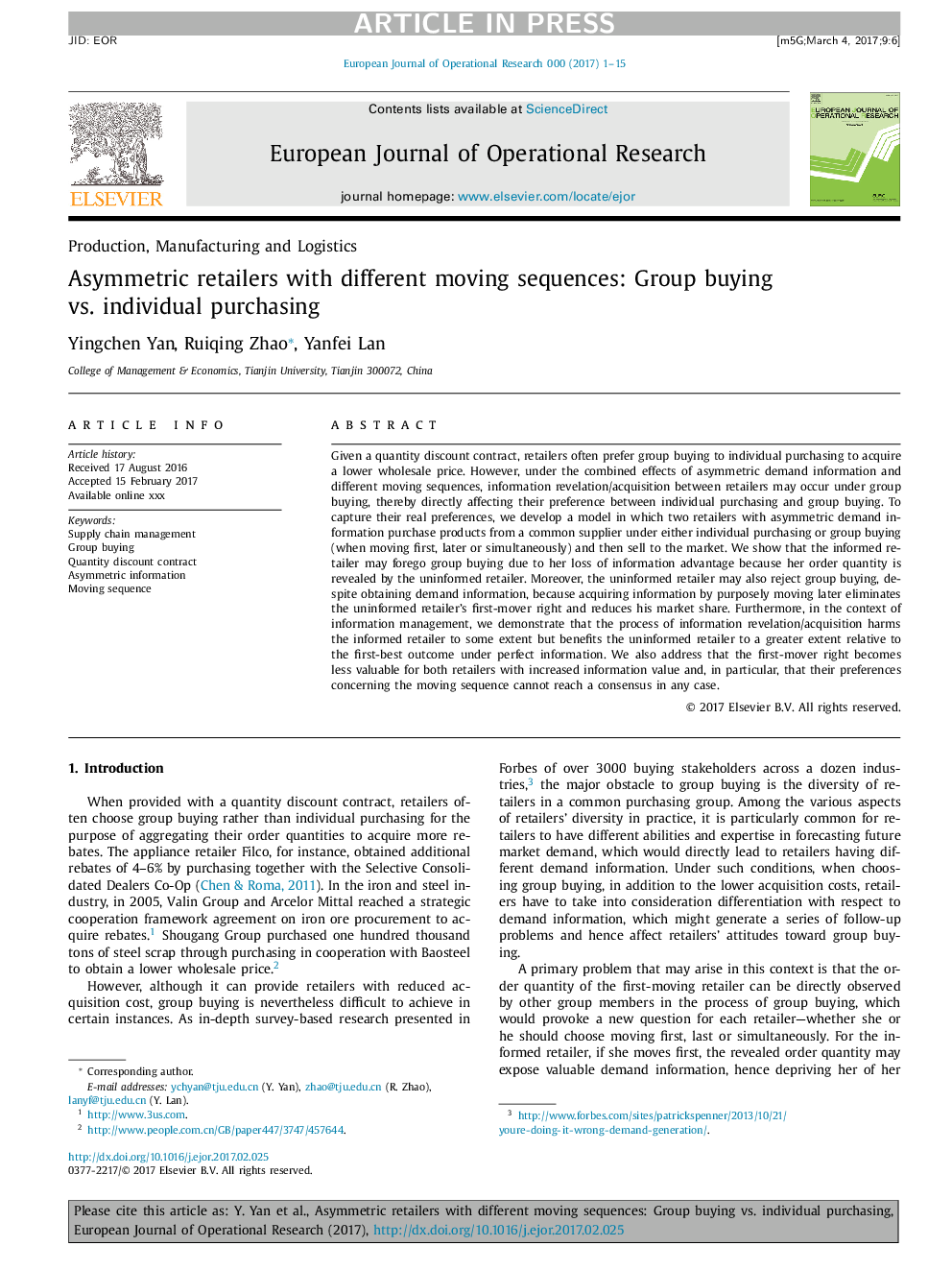| Article ID | Journal | Published Year | Pages | File Type |
|---|---|---|---|---|
| 4959475 | European Journal of Operational Research | 2017 | 15 Pages |
Abstract
Given a quantity discount contract, retailers often prefer group buying to individual purchasing to acquire a lower wholesale price. However, under the combined effects of asymmetric demand information and different moving sequences, information revelation/acquisition between retailers may occur under group buying, thereby directly affecting their preference between individual purchasing and group buying. To capture their real preferences, we develop a model in which two retailers with asymmetric demand information purchase products from a common supplier under either individual purchasing or group buying (when moving first, later or simultaneously) and then sell to the market. We show that the informed retailer may forego group buying due to her loss of information advantage because her order quantity is revealed by the uninformed retailer. Moreover, the uninformed retailer may also reject group buying, despite obtaining demand information, because acquiring information by purposely moving later eliminates the uninformed retailer's first-mover right and reduces his market share. Furthermore, in the context of information management, we demonstrate that the process of information revelation/acquisition harms the informed retailer to some extent but benefits the uninformed retailer to a greater extent relative to the first-best outcome under perfect information. We also address that the first-mover right becomes less valuable for both retailers with increased information value and, in particular, that their preferences concerning the moving sequence cannot reach a consensus in any case.
Related Topics
Physical Sciences and Engineering
Computer Science
Computer Science (General)
Authors
Yingchen Yan, Ruiqing Zhao, Yanfei Lan,
